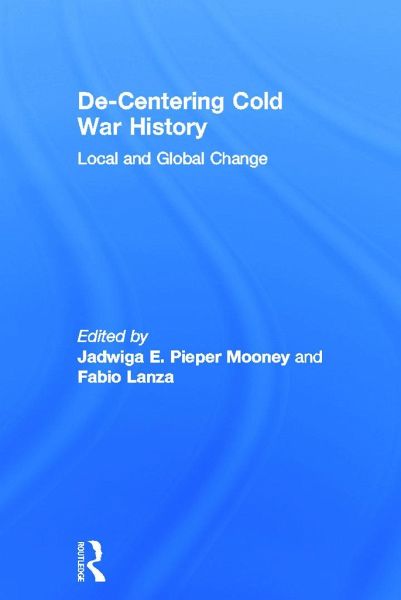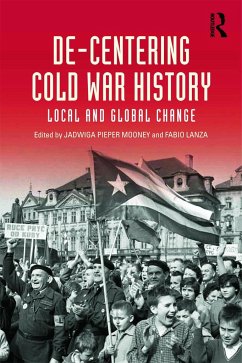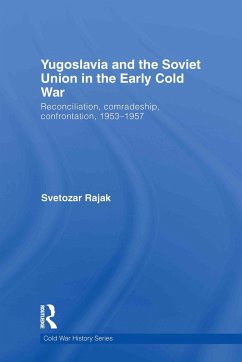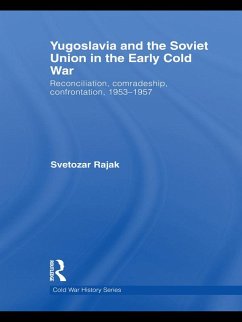
De-Centering Cold War History
Local and Global Change
Herausgeber: Pieper Mooney, Jadwiga E.; Lanza, Fabio
Versandkostenfrei!
Versandfertig in 1-2 Wochen
167,99 €
inkl. MwSt.
Weitere Ausgaben:

PAYBACK Punkte
84 °P sammeln!
Cold War histories are often told as stories of national leaders, state policies and the global confrontation that pitted a Communist Eastern Bloc against a Capitalist West. De-Centering the Cold War takes a new analytical approach to reveal unexpected complexities in the historical trajectory of the Cold War. This collaborative effort shapes a street-level history of the global Cold War era, one that uses the analysis of the 'local' to rethink and reframe the wider picture of the 'global', connecting the political negotiations of individuals and communities at the intersection of places and o...
Cold War histories are often told as stories of national leaders, state policies and the global confrontation that pitted a Communist Eastern Bloc against a Capitalist West. De-Centering the Cold War takes a new analytical approach to reveal unexpected complexities in the historical trajectory of the Cold War. This collaborative effort shapes a street-level history of the global Cold War era, one that uses the analysis of the 'local' to rethink and reframe the wider picture of the 'global', connecting the political negotiations of individuals and communities at the intersection of places and of meeting points between 'ordinary' people and political elites to the Cold War at large.














